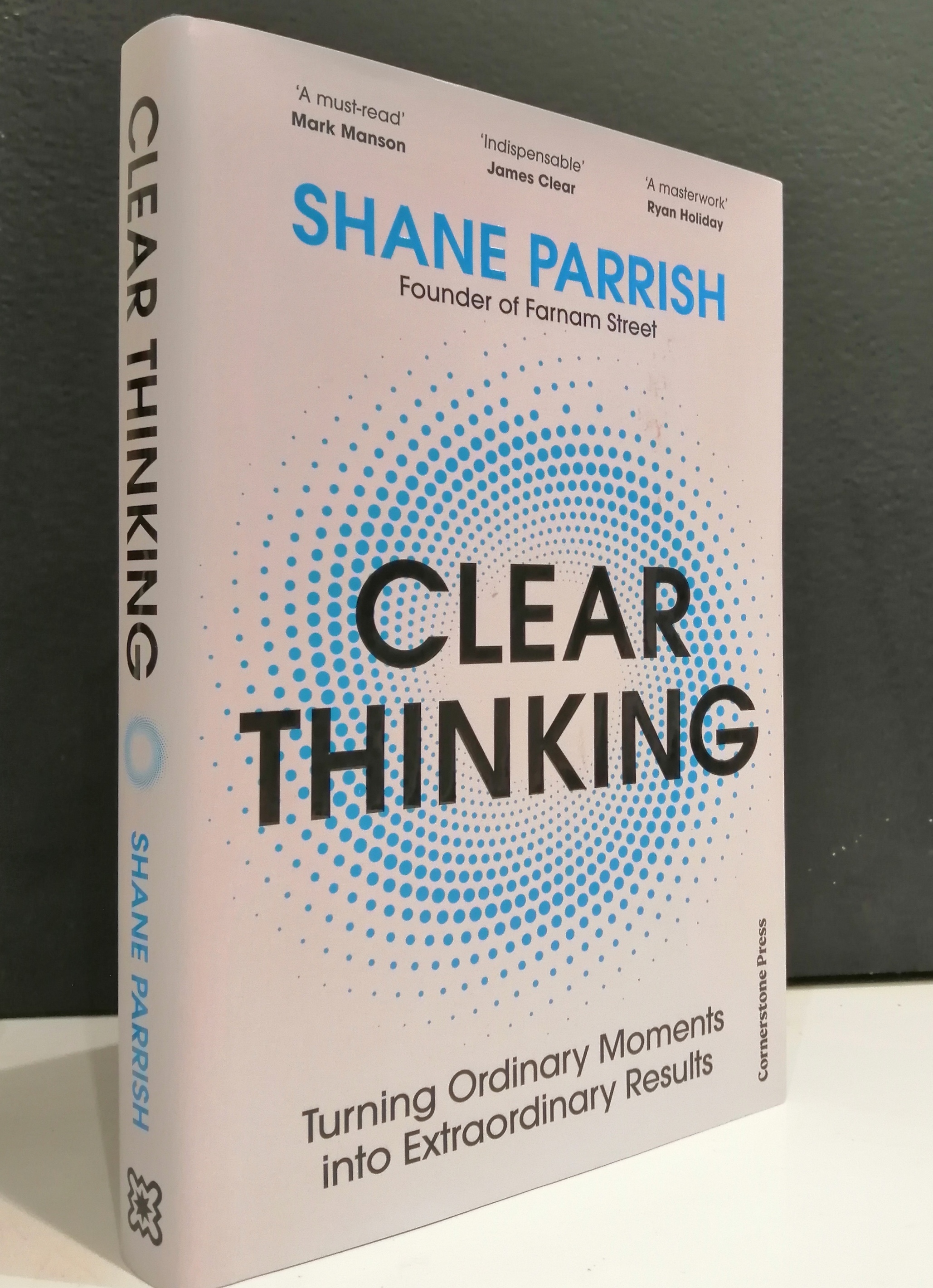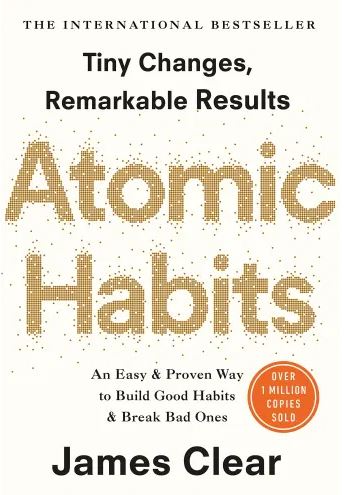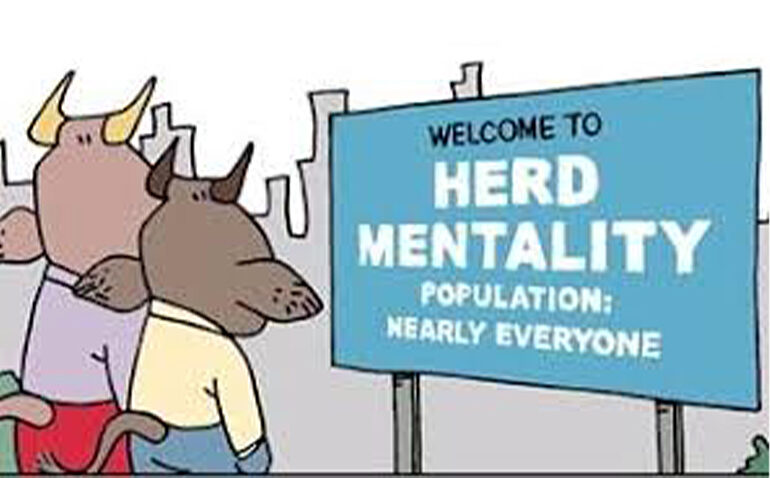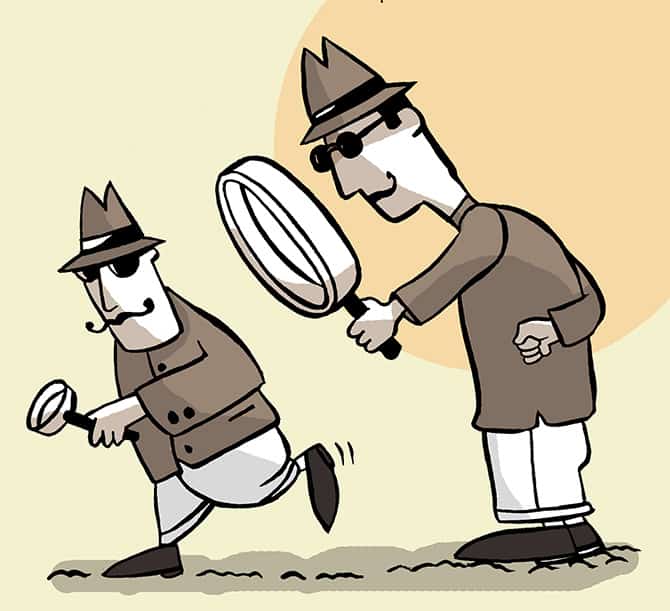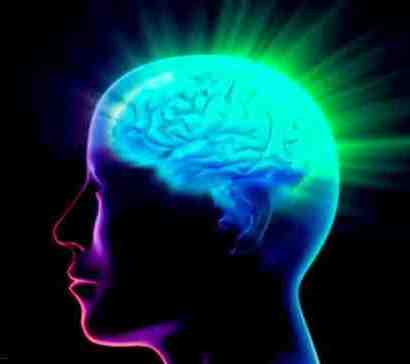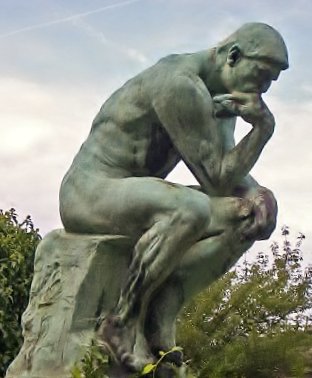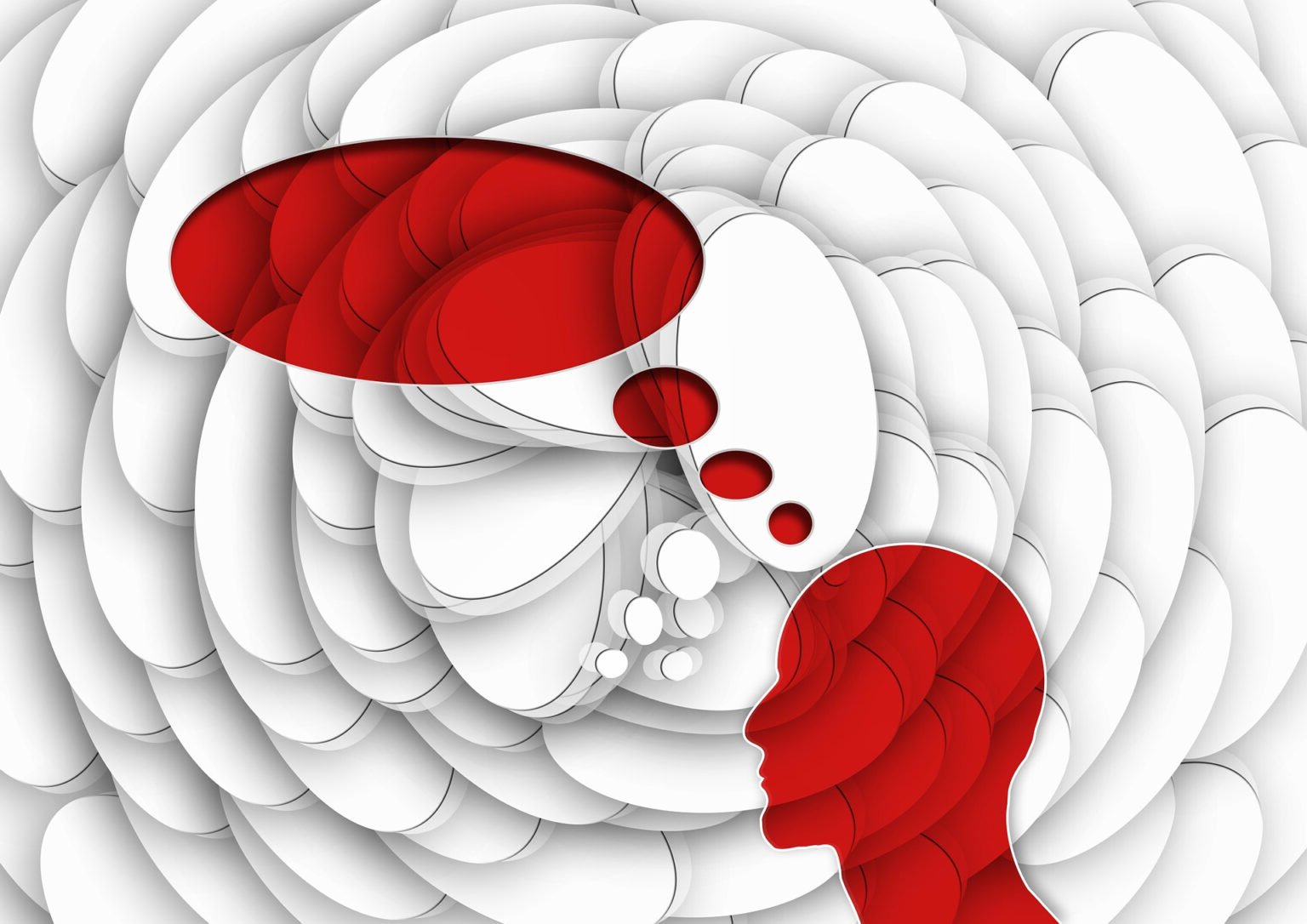Clear Thinking
Turning Ordinary Moments Into Extraordinary Results
Introducing Clear Thinking
"Clear Thinking" by Shane Parrish, published in Oct 2023, is a laudable testament to the art of cogent thinking, and will be of interest to those invested in developing and improving their thinking skills.
This article is intended:
- As an introduction (not a review) to the book, and as a tribute to the source materials from which it is drawn. These materials have had a major impact on my thinking and that is, I trust, reflected in the articles on this site.
- To draw connections between themes in this book and articles on this site that reflect the same source material.
Please note, I have no commercial connection with the author or his publishers and I do not receive any commission or any other form of remuneration for featuring this book or the author's blog.
Shane Parrish
Shane Parrish was employed by a Canadian intelligence agency from August 2001, shortly before the events of 9/11. In the chaos that followed he realised that the skills that he needed for clear thinking were skills that he had never been taught:
"My job involved constantly figuring out how to do things few had even imagined possible. Not only did I need to solve complicated and new problems, but people's lives were at stake...
For the next several years, I devoted myself to learning how to think better. I watched how people acquired information, reasoned and acted in practice, and how their actions unfolded into positive or negative outcomes.
To catlog my learning, I created an anonymous website called "Farnham Street", found at: https://fs.blog/ named in honour of Charlie Munger and Warren Buffet, two people who exercise judgment for a living and who have had a profound impact on how I see the world."
The Main Theme Of Clear Thinking
Parrish describes his book as a practical guide to mastering clear thinking.
- The first half of the book is about identifying the enemies of clear thinking and creating the mental space for reasoned thinking.
- The second half of the book is about how to practise clear thinking by acquiring the necessary skills and making them your defaults.
- He concludes with some practical considerations of why you would bother to do any of this anyway. In his own words:
"All the successful execution in the world is worthless if its not in the service of the right outcome, but how do you decide what that is?"
The Significance Of Ordinary Moments
In a recent interview Parrish was asked why ordinary moments matter:
"This concept emphasizes the significant impact of our actions in everyday situations.
Contrary to the common belief that major life decisions shape our future, it’s the small, often unnoticed choices that cumulatively steer our lives.
These moments determine our positioning and available options, influencing our ability to make sound decisions.
Recognizing and managing these instances can lead to a substantial positive effect on our long-term success and happiness, demonstrating the profound power of clear thinking in seemingly trivial moments."
Clear Thinking - Book Summaries
Key point summary
Here is a key point summary provided by Shane Parrish.
More comprehensive overview
Kyle Kowalski of Sloww offers a very clear and well structured overview and introduction to the content of Clear Thinking.
I suggest you skip the video as it is obviously created by AI and it isn't very good.
It's also worth scrolling down to some of the links he includes after his review - and especially the links on cognitive biases and mental models.
Clear Thinking - Target Audience
Who is this book suitable for?
This is a pertinent question because the casual reader is unlikely to be sufficiently motivated to engage with this material.
One of Shane Parrish's staff responded to a question about how to teach clear thinking in a recent posting on Reddit:
"What I've noticed through this work, and the subsequent comments from people online about our work, is that it's really difficult for people to "learn" clear thinking if they don't have a reason, or at least a reason they can verbally identify, to learn it."
He then goes on to describe the people who are receptive to learning clear thinking
If this is not you at the moment, may I recommend that you file this material until such time as you may have need and be able to benefit from it?
Clear Thinking - 5 Key Takeaways
[1] Your position determines your future.
The greatest aid to judgment is starting from a good position. You don’t need to be smarter than others to outperform them if you can out-position them.
Anyone looks like a genius when they’re in a good position, and even the smartest person looks like an idiot when they’re in a bad one.
Over the long term, the average person who constantly puts themselves in a good position beats the genius who finds themselves in a poor position.
What looks like talent is often good positioning. And the best way to put yourself in a good position is with good preparation.
A good position allows you to think clearly rather than be forced by circumstances into a decision.
One reason the best in the world make consistently good decisions is they rarely find themselves forced into a decision by circumstances.
Positioning is the key to an unstoppable advantage.
This is all about:
- Preparing yourself to recognise your opportunity when it arises.
- Developing the skills and resources to exploit and optimise it.
Here are 3 key actions that you need to take and apply everyday, and these actions are based on the following 3 foundations...
How Positive Asymmetry Can Transform Your Life
[2] Turn desired behavior into default behavior
Eventually, everyone loses the battle with willpower. Sometimes, it’s really hard to do the things we want to do. We can use safeguards to change our behavior.
One type of safeguard is automatic rules. We’ve been taught our whole life to follow rules, but we’ve never been taught how to use rules to our advantage.
Another way to change your behavior is by creating an intentional environment where your desired behavior becomes the default behavior, and we do this by creating atomic habits.
Atomic habits are:
- The single irreducible component that when practiced regularly yield incredible results through the power of compound growth.
- Comprised of small and seemingly insignificant changes that will compound into remarkable results if you persist with them consistently over many years.
- The result of having the right system in place. Bad habits are the result of you having the wrong system in place.
Atomic Habits - Tiny Changes & Remarkable Results - Over Time
[3] If you do what everyone else does, you will get the same results everyone else gets.
Fear holds us back from taking risks and reaching our potential.
We follow the herd - and often without realizing it - we mimic other people's choices.
When we are uncertain about what's normal, we trust what others are doing as the most appropriate thing to do.
We follow others when we are self conscious and want to fit it.
The social rewards for going with the crowd are felt long before the benefits of going against it are gained.
One measure of a person is the degree to which they’ll do the right thing when it goes against popular belief. However, it is easy to overestimate our willingness to diverge from the crowd and underestimate our biological instinct to fit in.
Here are 3 guiding principles to protect you from herd mentality:
Herd Mentality And How To Avoid It
[4] Focus on outcome over ego.
Our desire to feel right overpowers our desire to be right. The ego default urges us to feel right at the expense of being right. Few things feel better than being right—so much so that we will unconsciously rearrange the world into arbitrary hierarchies to maintain our beliefs and feel better about ourselves.
We mistake how we want the world to work for how it does work.
Most people go through life assuming that they’re right and that people who don’t see things their way are wrong.
We mistake how we want
the world to be with how it actually is.
Yet as Jeff Bezos has observed: "...the smartest people are constantly revising their
understanding, reconsidering a problem they thought they'd already
solved. They're open to new points of view, new information, new ideas,
contradictions, and challenges to their own way of thinking..." in other words, they focus on outcome over ego.
Focusing on the outcome requires you to ask the right questions:
Asking The Right Questions - How To Avoid Wonky Thinking
[5] It might not be your fault, but it’s your responsibility.
Self-accountability means taking responsibility for your abilities, your inabilities, and your actions. If you can’t do that, you might never move forward.
You might not have someone in your life who holds you accountable, but that doesn’t matter. You can hold yourself accountable.
People who lack self-accountability tend to run on auto-pilot.
There is always something you can do in the moment now to better your position tomorrow. You might not be able to solve the problem, but your next action will make the situation better or worse.
There is always an action you can control, however tiny, that helps you achieve progress.
Ultimately, the outcomes that you experience are determined by your responses to the events in your life.
This can be expressed as: Outcome = Event x Response
The strength and quality of your response is determined by the skills and the experience you bring to it.
The stronger your response - the better the outcome.
The Law Of Response and Outcome
Clear Thinking - Related Articles On This Site
The Art Of Thinking Clearly - 3 Steps To Clarity
The art of thinking clearly starts with the
sobering realisation that our brains are designed to ensure our
survival and that we reproduce
98% of our thinking is unconscious, automatic and impulsive.
This thinking uses our mammalian brain which is all about emotions and is driven by our reptilian brain which is focused on survival.
The process of this thinking is based on assumptions, analogy and mental short-cuts and leaves us wide open to a very wide range of cognitive biases and distortions as it so often leads us to conclusions that confirm what we want to hear.
All of this is just wonderful from an evolutionary perspective as it keeps us alive and reproducing, but this conflicts deeply with the art of clear thinking.
How To Think - Thinking Skills, Focusing On HOW Not WHAT To Think
We are currently living in an age of unreason where:
- Experts are denigrated and ignorance, bias and prejudice is celebrated;
- Woke thinking takes precedence over reasoned debate;
- Virtue signally takes precedence over private philanthropy;
- Intelligent discussion and agreement to disagree and respect for other shades of opinion are denied in the current cancel culture;
- Public debate is hijacked and taken over by group think and mob rule.
All of which provides another very powerful rationale and motivation for clear thinking.
Who Is In Charge Of Your Brain - How Not To Be Stupid
Who is in charge of your brain? This matters because the outcomes that you experience in your life are determined by how you respond to the events that impact you.
The quality of your responses are shaped by how effectively you think, and this is a learned skill.
Your ability to think effectively, your responses, and the long term impact of the choices that you make can have a major effect on your health, wealth and happiness.
So let's take a look inside your skull and see if we can figure out who is in charge of your brain and how that impacts your capability for clear thinking.
Group Culture - The Invisible Software That Rules Your Life
As social creatures we spend the majority of our time in the company of others, either by choice with our friends or by default with our families and employers.
We like to see ourselves as free agents making our own choices and living authentically but the reality is that The Matrix has many layers and we are unaware that we are more enmeshed and ensnared than we realise.
We are, to a very large extent, governed by our conditioning and our hardwired cognitive biases.
Group culture has a very powerful influence on our thought processes, decisions and behaviours and mitigates against clear thinking.
What Is Truth - How To Tell A Partial Truth From The Whole Truth?
To understand the whole truth we have to look at all the known and established facts and see the whole picture, which is often not as binary as it is often presented.
Anything less than this is a partial truth.
A partial truth is a fact that is true but is a fragment of the whole truth.
When a partial truth is overstated and presented as the whole truth it becomes a lie, a deception, and a misdirection and obscures clarity of thought
When a partial truth forms the foundation of a belief it becomes potentially dangerous because it impedes clear thinking.
Master the best of what other people have already figured out.
Ever wondered how the most successful people make decisions? It’s not luck; it’s clear thinking.
However, as we noted above, learning clear thinking is not easy - even when you are highly motivated. There is so much to learn and apply.
It's rather like trying to eat a mammoth.
But as I am sure you know, the best way to eat a mammoth is in bite sized chunks.
This is why in my experience with Shane Parrish's material, I have found that the best way to absorb it and implement it is to subscribe to his blog and his free weekly newletter:
In December 2023 Shane published this annual reflection:
7 Powerful Questions To Reflect On and Make Yourself Unstoppable
Return from "Clear Thinking" to:
LATEST ARTICLES
How To Live With Contradiction - Beyond Thought Let Stillness Speak
 A major impact on so many peoples' lives is the situational contradiction of unfilled realistic expectations. So where does all this leave us? Well here we are, with mental equipment that is more lim…
A major impact on so many peoples' lives is the situational contradiction of unfilled realistic expectations. So where does all this leave us? Well here we are, with mental equipment that is more lim…How To Trust The Process Of Mindfulness - Right Now
 In mindfulness, the process isn’t some distant goal — it's what is happening right now. When we talk about how to trust the process of mindfulness the credibility of the process is heavily dependent…
In mindfulness, the process isn’t some distant goal — it's what is happening right now. When we talk about how to trust the process of mindfulness the credibility of the process is heavily dependent…Inner Mastery For Outer Impact - Mental Clarity For Effective Action
 Insights only matter if they translate into consistent action. In a world crowded with quick fixes and motivational soundbites, the theme “Inner Mastery for Outer Impact” calls us to something more e…
Insights only matter if they translate into consistent action. In a world crowded with quick fixes and motivational soundbites, the theme “Inner Mastery for Outer Impact” calls us to something more e…The Wise Advocate - Helping You Achieve The Very Best Outcome
 The focus of your attention in critical moments of choice either builds or restricts your capacity for achieving the best outcome. When we talk of 'The Wise Advocate' its easy to think of the consigl…
The focus of your attention in critical moments of choice either builds or restricts your capacity for achieving the best outcome. When we talk of 'The Wise Advocate' its easy to think of the consigl…Trust The Process - Beyond The Cliche
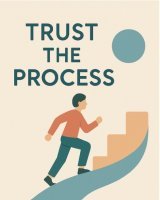 The phrase "trust the process" has become a cliche, the woo-woo mantra of the "self help" industry. Those three little words feel like they ought to mean something useful but hidden behind them are a…
The phrase "trust the process" has become a cliche, the woo-woo mantra of the "self help" industry. Those three little words feel like they ought to mean something useful but hidden behind them are a…The Dopamine Delusion - Why Anticipation Beats Achievement
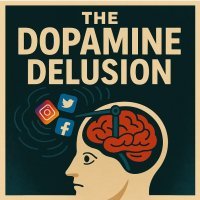 The thrill we feel is not in the having, but in the wanting. The more we have, the more we want. The more things we acquire and the easier things get for us, the more discontent we feel. The more spo…
The thrill we feel is not in the having, but in the wanting. The more we have, the more we want. The more things we acquire and the easier things get for us, the more discontent we feel. The more spo…The Power Of Silence Is Experienced In Your Use Of Language
 Practise the "Beneficial Neurological Delay" for optimal comprehension. The power of silence is experienced in your use of language, specifically: - How you formulate the words you use to think and in…
Practise the "Beneficial Neurological Delay" for optimal comprehension. The power of silence is experienced in your use of language, specifically: - How you formulate the words you use to think and in…Dealing With Setbacks - 5 Questions To Help You Face Discomfort
 How To Counter The Cognitive Shock Of A Setback. Setbacks challenge your instinctual desire for control and comfort, making it unnatural to respond with calm or acceptance. The reason for these instin…
How To Counter The Cognitive Shock Of A Setback. Setbacks challenge your instinctual desire for control and comfort, making it unnatural to respond with calm or acceptance. The reason for these instin…Why Praxis Is The Key To Living A Successful And Stress Free Life
 Praxis Is The Process Of Taking Informed Action To take informed action you need to be prepared with information, knowledge, education and insight. Informed action is objective action that: - Seeks to…
Praxis Is The Process Of Taking Informed Action To take informed action you need to be prepared with information, knowledge, education and insight. Informed action is objective action that: - Seeks to…The Power Of Working With The Front Line
 How To Exercise Influence Without Authority In Complex Systems I first discovered the power of working with the frontline when I was working as a business troubleshooter on large projects, programmes…
How To Exercise Influence Without Authority In Complex Systems I first discovered the power of working with the frontline when I was working as a business troubleshooter on large projects, programmes…Dealing With Distraction - Learning How To Live With Your "Attention Autopilot"
 Living With Your Attention Autopilot The good news about your Attention Autopilot is that it will keep you safe. It is continuously scanning your immediate environment for threats. The bad news is tha…
Living With Your Attention Autopilot The good news about your Attention Autopilot is that it will keep you safe. It is continuously scanning your immediate environment for threats. The bad news is tha…The Time Of Your Life - Recognising Moments Of Alignment For Action
 How will you recognise your moment of alignment for action? In this article I want to look at our relationship with time and in the context of the two main themes of this site, firstly as a thinking s…
How will you recognise your moment of alignment for action? In this article I want to look at our relationship with time and in the context of the two main themes of this site, firstly as a thinking s…
